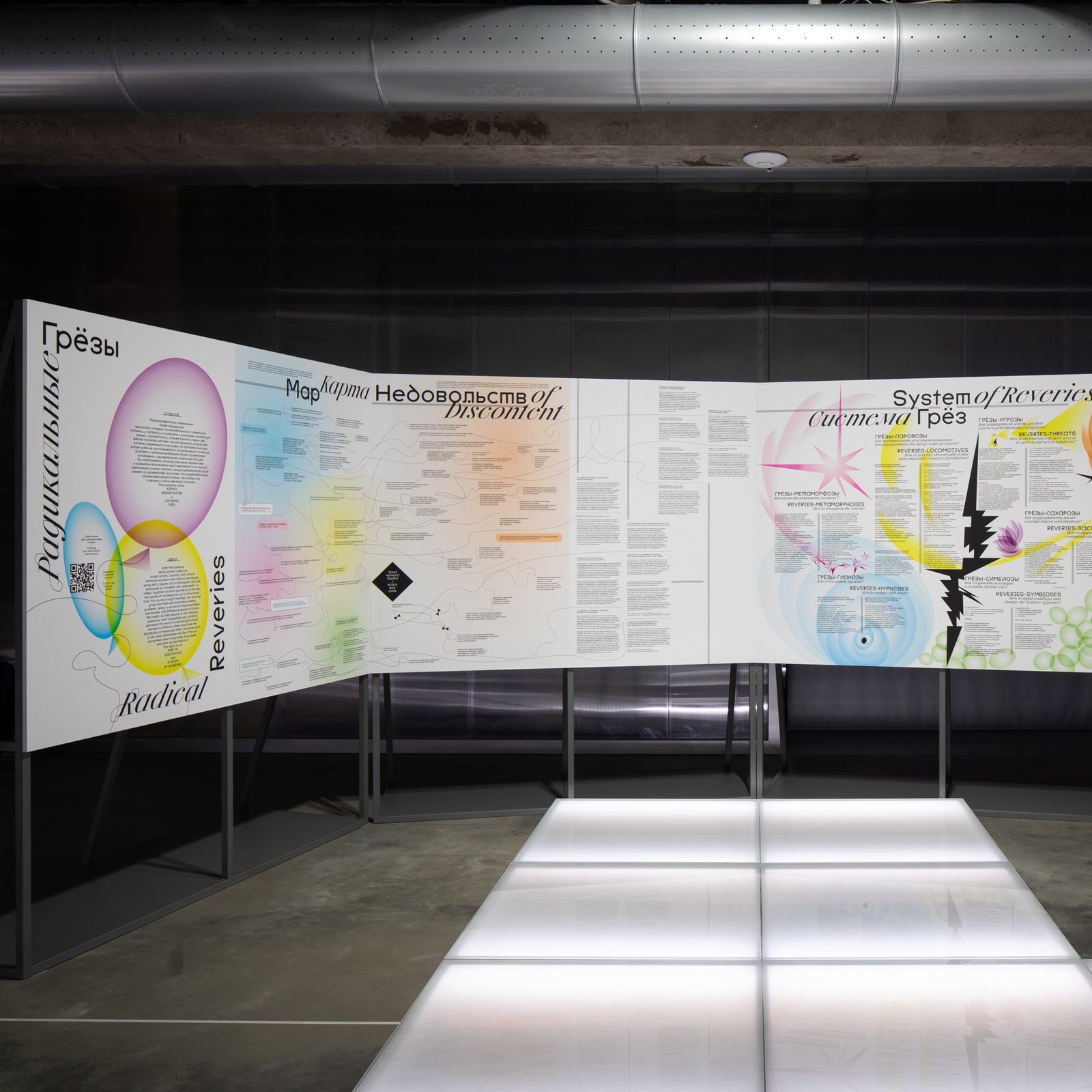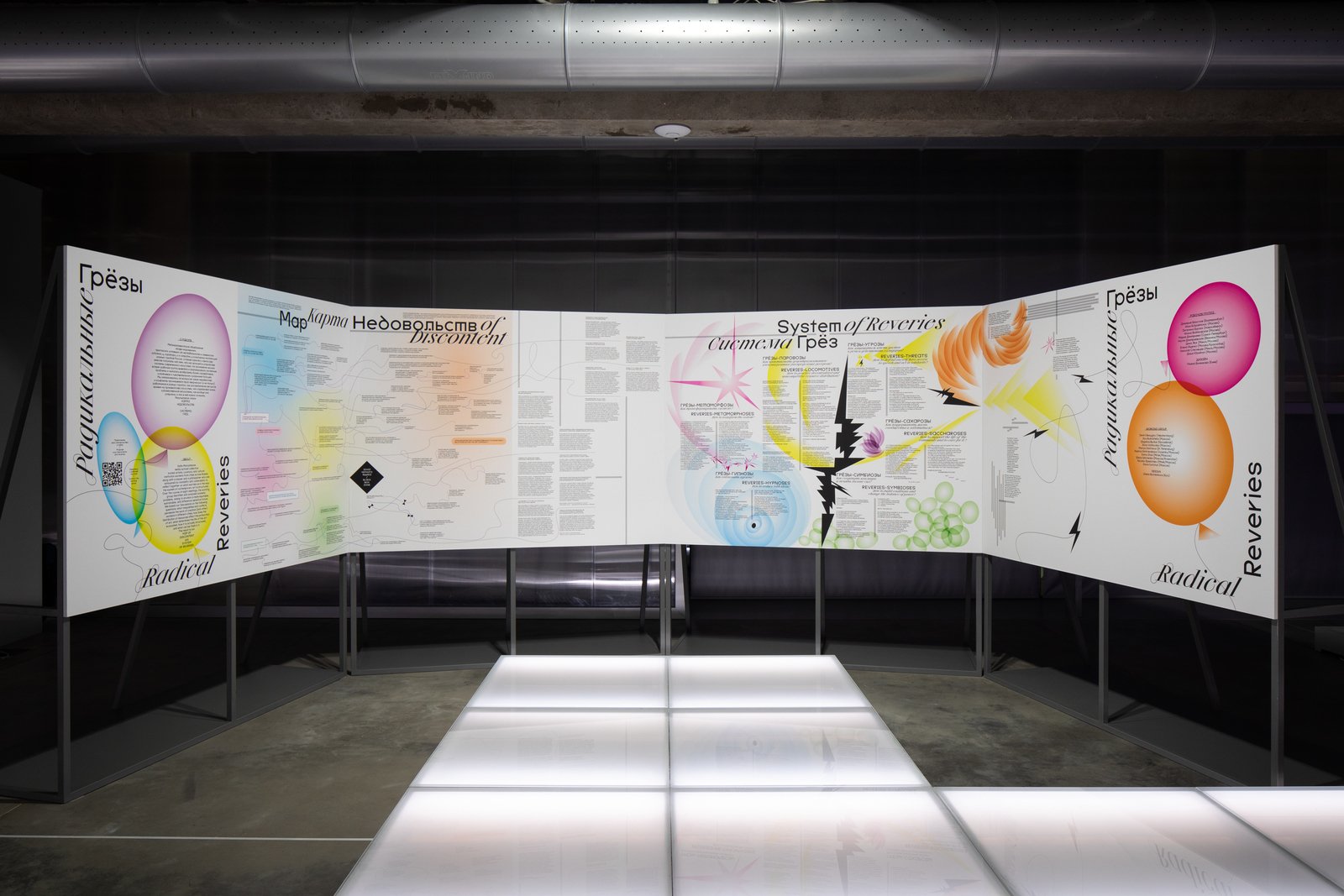The cycle of discussions continues and expands the point “field study” of the resource allocation system and its impact on the functioning of contemporary art in Russia, launched by Kafe-Morozhenoe media activist collective as part of their project for the show Assuming Distance: Speculations, Fakes, and Predictions in the Age of the Coronacene.
Kafe-Morozhenoe used the method of collective analytical and speculative mapping to develop this project. Together with the working group (Dmitry Bezuglov, Ilya Budraytskis, Angelina Burlyuk, Ilona Voitkovskaya, Maria Dmitrieva, Dina Zhuk, Elena Ishchenko, and Nikolay Spesivtsev), Kafe-Morozhenoe members Nastya Dmitrievskaya and Dasha Yuriychuk created maps of problem areas in the current resource allocation system, while also suggesting a kaleidoscope of projective ideas-dreams, from fantastic utopias to specific practical proposals. The research results were designed by artist Ulyana Bychenkova into rhizome-like schemes, displayed at the exhibition and published as a zine.
During the cycle of discussions, the working group members, together with guest speakers, will address a number of key issues raised while preparing the project, including the effects of neoliberal cultural policy, legal mechanisms for the protection of cultural workers, strategies for the decentralization of power and resources in contemporary art, as well as the possibilities for the development of alternative economies.
Discussion moderators: Kafe-Morozhenoe media activist collective


